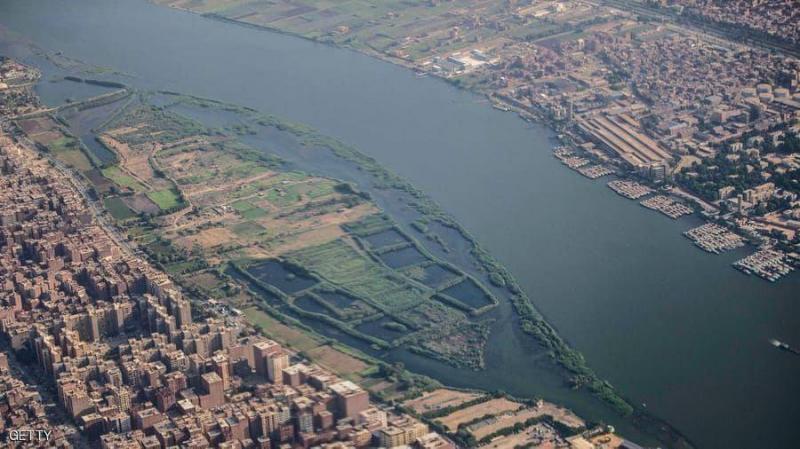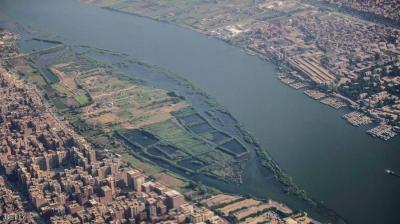Amidst a climate of anticipation awaiting the resumption of tripartite negotiations between Egypt, Sudan, and Ethiopia regarding the Grand Ethiopian Renaissance Dam, Egyptian water expert and Professor of Water Resources at the African Studies Institute, Abbas Sharaki, announced good news for the Egyptians.
Sharaki stated that the flood of 2021 is 30% higher, noting that "in a few days, the peak of the flood will end by the end of September, which has shown a rise this year of approximately 30%." The water level of the Nile River near Khartoum has seen a gradual decrease since it reached its highest point of this year at 17.27 meters on September 10.
In an interview with "Sky News Arabia," the Egyptian expert confirmed that the Nile's water level varies from year to year due to several environmental and climatic factors that affect floods globally, and consequently, river levels. He elaborated that "what occurred this year is a significant increase in the flood level, reaching 30% by the end of the season, thus securing Egypt's water share."
Sharaki indicated that Ethiopia has stored 3 billion cubic meters of water so far. Regarding the technical and scientific details of the water level rise, Sharaki explained that it is 77 centimeters above the flood level, but it has decreased at the beginning of this week to below the flood level, thus alleviating the danger to Khartoum. "Satellite images indicate that the floodwaters of the Nile have receded to settle between its banks, with remnants of floodwaters in some areas," the expert added.
He continued: "The inflow of the Blue Nile gradually decreases in September and October, but it remains 28% higher than the average in September. The discharge from the Grand Ethiopian Renaissance Dam today is about 523 million cubic meters, the lowest discharge since the end of July, yet it is approximately 40% higher than the average for this day, and rainfall continues to gradually decrease until the end of October, with the Blue Nile's inflow reaching 200 million cubic meters by the end of October."
Despite the rising river levels, Sharaki reiterated the necessity to resume negotiations between the three countries and reach an urgent and final agreement regarding the second filling and operation of the turbines of the Grand Ethiopian Renaissance Dam, urging Ethiopia not to continue unilateral measures that pose risks to downstream countries.
He noted that "Cairo welcomed the presidential statement from the Security Council issued on September 15, 2021, which encouraged Egypt, Ethiopia, and Sudan to resume negotiations regarding the Renaissance Dam within the negotiation framework led by the African Union, aiming to quickly finalize the formulation of a legally binding agreement on the filling and operation of the dam within a reasonable timeframe."
Sudanese Minister of Irrigation Yasser Abbas previously expressed hope for negotiations to resume regarding the Renaissance Dam following the Security Council statement. Abbas tweeted, "Sudan hopes that the adoption of the Security Council statement will urge the three parties to resume negotiations as soon as possible, based on a process enhanced by the African Union's leadership and tangible political will from all sides."
Recently, tensions have risen between Ethiopia and both Egypt and Sudan after Addis Ababa announced it had begun the second filling of the Grand Ethiopian Renaissance Dam reservoir, raising concerns for the downstream countries.




